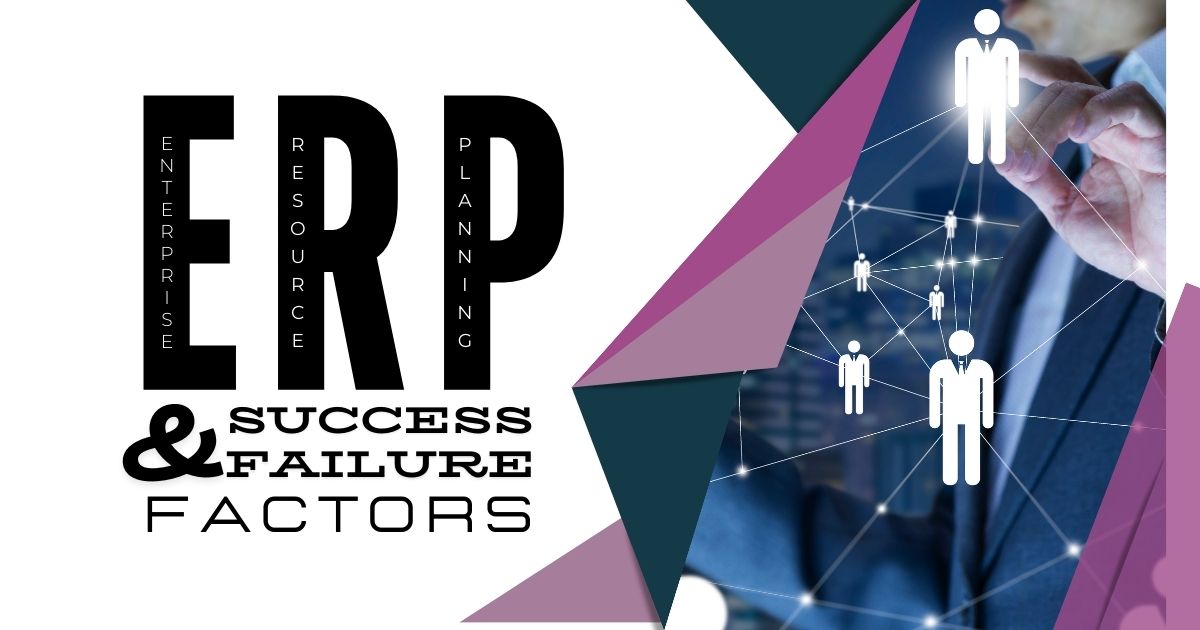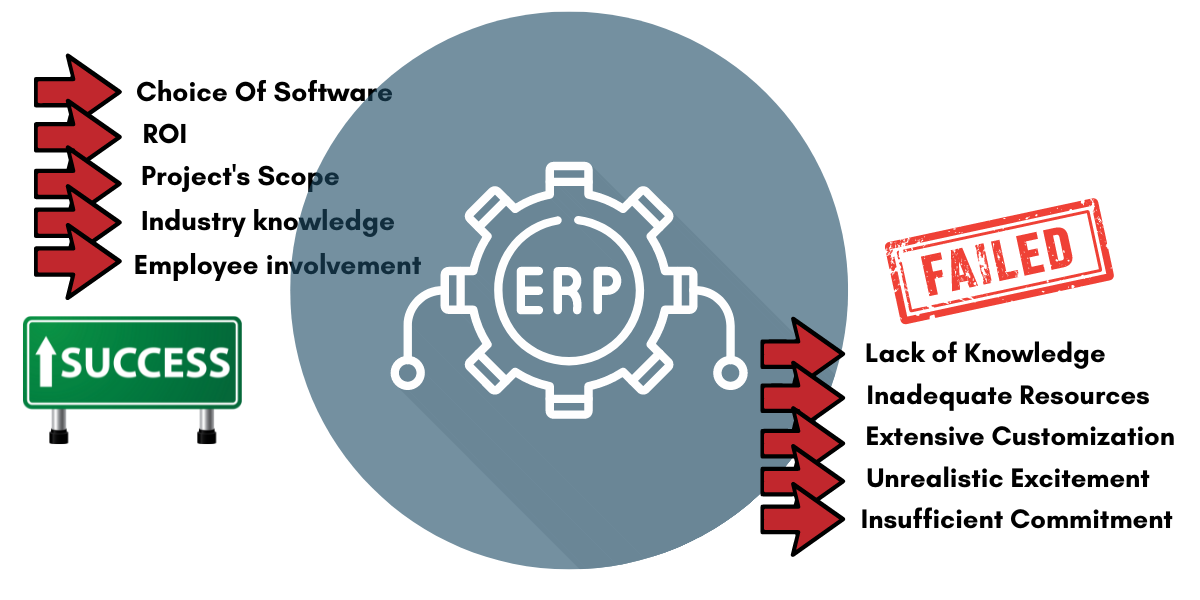Enterprise resource planning (ERP) implementations commonly confront complex barriers, which might result in failures. Technical proficiency, managerial backing, and user engagement are necessary for success. Particular business procedures have significant effects on results. Operations can be hampered by failures, which emphasizes the necessity of identifying critical success factors (CSFs) for productive ERP installation.

ERP adoption is currently widespread in significant companies. Incorporating new software into a company's core business processes involves many intricate components. However, not every company that uses an ERP system makes money from doing so. Businesses should be well-informed about ERP failures and success factors to ensure success.
ERP Failures and Success Factors

Critical Success Factors in ERP Implementation
Countless features influence the success or failure of ERP implementations. Studies reveal that almost 50% of ERP projects fall short of expectations, costs are significantly overrun, schedules are not fulfilled, and progress needs to be up to standard. If you want your ERP implementation to be successful, use change management strategies as your top concern.
Complete Emphasis on the Business Objectives:
The efficient operation of a business should take precedence. After accurately defining the requirements, you may choose ERP software that will work much better. It will result in the precise management of your company's activities.
Choice of software:
The most frequent error is selecting incorrect software. It's something that at least some people do when running an ERP system. Selecting the ideal ERP should come first after knowing the precise requirements. Understanding your future demands, priorities, vendors, sales, and more will be made more accessible for you.
ROI:
While these ideas are neither new nor particularly groundbreaking, they should be implemented properly to maximize earnings from the ERP system. Businesses should closely monitor performance, goals, models, deadlines, and other factors because they have a direct impact on their profit.
Project's scope:
Clearly outlining a project's scope will describe its current state, all of its minor points, the actions that must be taken, etc., because the ERP system may not meet all of your needs. You can only precisely use the tools and components associated with it by developing techniques and determining the modules.
Spending Plan or Budget:
Every business needs to provide a substantial budget. The budget covers all costs associated with the execution, including staff resources, hardware, and software. Making the most of an ERP project calls for finishing all of these tasks.
Employee involvement:
The ERP implementation team should consist of top-tier employees who understand your organization's processes, have critical decision-making authority, and possess comprehensive knowledge of your company's needs.
A partner with industry knowledge:
ERP implementations include multiple moving components that affect all aspects of a business, particularly for consumer brand enterprises. We suggest collaborating with a partner who is well-informed about both the software and your industry to lead and oversee the success of your project.
For more Details Read: How to Implement ERP Successfully
Critical Failure Factors in ERP Implementation
Ignorance or Lack of Knowledge:
If top management does not educate and keep the staff up to speed on the operation of the ERP system, as well as provide confidence in the safety of their jobs, they will begin to believe the claims of others and disrupt ERP execution.
Insufficient Commitment from Management:
Management must support ERP implementation, requiring effort and patience. Effective execution disrupts primary company processes. Regular communication with the project team is crucial for success, maintaining a positive mood, and expressing gratitude.
Inadequate Resources:
ERP implementation can incur unstated costs and budget overruns, especially with unskilled personnel. Factors like expenses, infrastructure requirements, and resource allocation must be considered during budgeting and resource allocation.
Extensive Customization:
Installing the next version of ERP software is quite difficult and costly. It also takes longer and costs more when you extensively customize an ERP installation.
Unrealistic Excitement:
When appropriately implemented, ERP systems can lead to extremely high production levels. Management and employees must be aware of the benefits to minimize any overeagerness.
Ending Words
Most medium-sized businesses have limited experience with large and demanding IT projects, so implementing ERP software is a new field for them. A key component in the selection process is the ERP provider's competence and skill. No matter what obstacles you face throughout the ERP implementation, you can overcome them all with success if you have an experienced partner by your side. If you want your ERP implementation to be successful, learn about ERP failures and success factors and use change management strategies as your top concern.
Techlyace, an official Odoo partner, have best ERP implementation team, specializes in seamless ERP implementations, ensuring a smooth transition, minimizing disruptions, and maximizing efficiency. You can make your ERP system work to its maximum potential by collaborating with us.